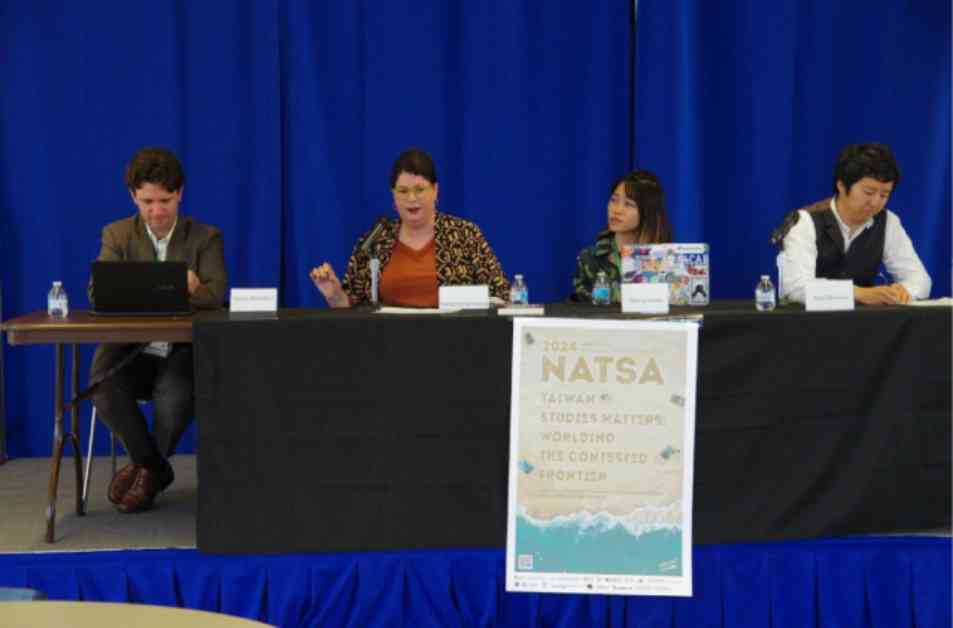Exploring the Evolution of Taiwan Studies
In a recent gathering of scholars in New York City, the North American Taiwan Studies Association (NATSA) Annual Conference brought together approximately 80 researchers from various humanities and social sciences disciplines to delve into the past and future of Taiwan studies. Established in 1995, NATSA has served as a platform for trans-disciplinary Taiwan researchers to collaborate, share their latest studies, exchange ideas, and chart new directions for the field. The conference’s theme, “Taiwan Studies Matters: Worlding the Contested Frontier,” guided discussions in NATSA 2024, examining the evolving landscape of Taiwan studies and its significance in a global context.
Historicizing Taiwan Studies
During the closing forum of NATSA’s Annual Conference, titled “(Re)Writing Taiwan Studies History: Disciplinarity and Knowledge Production of Taiwan,” four distinguished experts in Taiwan studies shed light on the field’s history and future directions. Seiji Shirane, a historian specializing in modern Japan and colonial Taiwan, provided insights into the development of Taiwanese history studies over the past thirty years. Shirane emphasized the interdisciplinary nature of Taiwan studies, showcasing its interactions with various fields and subfields, such as postcolonial studies, literary studies, and studies of Taiwanese identity.
Interdisciplinary Perspectives on Taiwan Studies
Shinyi Hsieh, a medical historian focusing on the global history of health and postcolonial feminism, presented a unique perspective on the interplay between Taiwan studies and the history of science and medicine. Through her research on the transnational history of trachoma and other scholarly works, Hsieh highlighted the importance of solidarity as a methodological praxis in uncovering marginalized histories and fostering connections between disparate communities. By situating Taiwan within a global context, Hsieh demonstrated the potential for Taiwan studies to engage in broader dialogues and contribute to a more inclusive understanding of history.
Derek Sheridan, an anthropologist specializing in Africa-China relations, delved into the historical changes in oral history and anthropological research on Taiwan. By examining the factors of institutional promotion and funding opportunities that have influenced Taiwan studies, Sheridan underscored the complex interplay between political, economic, and social contexts in shaping knowledge production. Through a new book project, “Studying Taiwan Before Taiwan Studies: American Anthropologists in Cold War Taiwan,” Sheridan explored the prehistory of Taiwan studies, highlighting the cultural and political influences on early anthropological research in Taiwan.
Meredith Schweig, an ethnomusicologist researching the popular music of East Asia, provided insights into the evolution of ethnomusicology in Taiwan studies. Schweig emphasized the role of music as a form of expression that transcends boundaries and articulates political, economic, and social expressions. By challenging the traditional discourse of ethnography and centering sound and music as alternative forms of writing ethnography, Schweig highlighted the potential for ethnomusicological research to amplify the voices of marginalized communities within Taiwan and beyond.
In conclusion, the discussions at the NATSA Annual Conference underscored the importance of interdisciplinary perspectives in shaping the future of Taiwan studies. By historicizing the field, engaging in global dialogues, and challenging traditional modes of knowledge production, scholars in Taiwan studies are paving the way for a more inclusive and nuanced understanding of Taiwan’s history and significance in the world.












